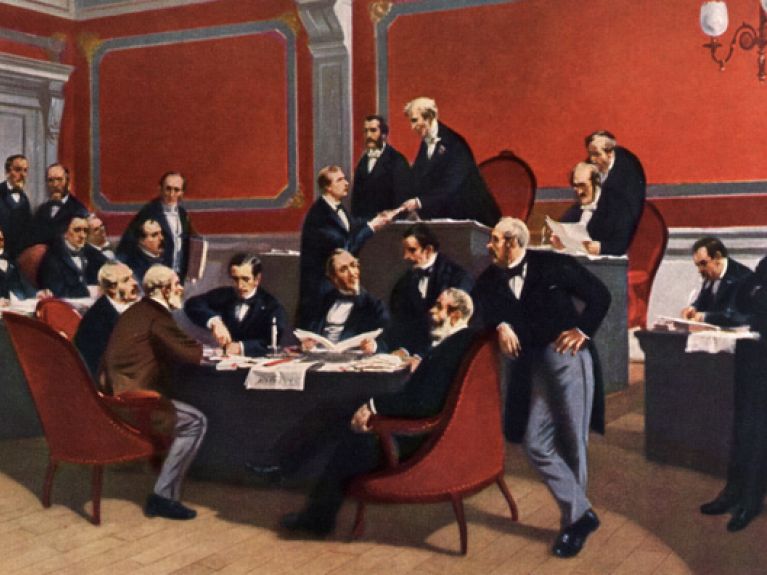Celebrating 150 years of the Geneva Conventions
The Geneva Conventions protect people during wars.

The Geneva Conventions are sets of binding treaties aimed at protecting people during wars. They form the core of international humanitarian law and have been accepted by 195 nations. This means that these countries’ governments have promised to adhere to certain standards so that even during military conflicts people are able to demand a minimum of humane treatment from their enemies.
The first version was formulated 150 years ago. At the time, it was agreed that all nations are duty-bound to help soldiers injured on the battlefield. On 12 August 1949 the Geneva Conventions were reworked in view of the war crimes committed during the Second World War. The existing regulations were revised and expanded to include the protection of civilians in armed conflicts, with the principal focus on women and children. For example, since 1949, the Conventions have stated that children should not be separated from their parents. The regulations have also been extended to the protection of prisoners-of-war. The Federal Republic of Germany signed the treaties in 1954.
